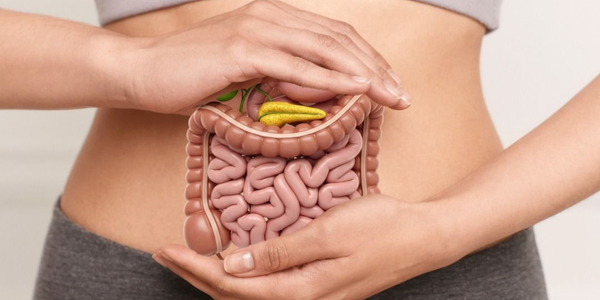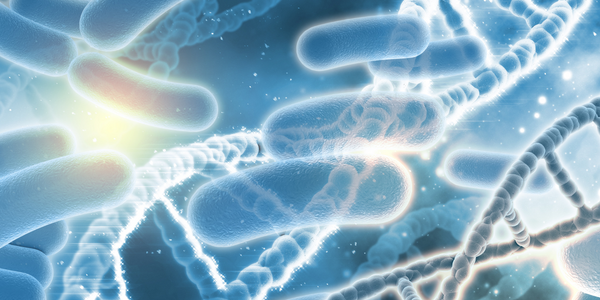Do you sometimes wish a magic stomach cleaning tablet or a digestive enzyme tablet could work on your poor gut health and fix things for you forever? We get it; gut issues can significantly impact your daily lifestyle, and for some with persistent conditions, it could even be a daily stressor. If this sounds like you, keep reading to learn why it happens and how you can combat it.
What are the effects of a sluggish digestive system?
In addition to symptoms like nausea or an uneasy feeling after eating, a slow digestive system can cause issues like regular constipation, hard stools, and stomach pain. If you also find that you are not experiencing bowel movements on a daily basis, you may be suffering from lazy bowel syndrome or sluggish or slow digestion. This condition occurs when waste passes slowly through the digestive system and is mostly caused by the large intestine's sluggish motility.
The gut is also home to a diverse community of microorganisms collectively known as the gut microbiota. This microbiota plays a crucial role in shaping the development and functioning of the immune system. It helps train immune cells, regulates inflammation, and maintains a balance between immune tolerance and responsiveness. An imbalance or disruption in the gut microbiota can lead to immune dysfunction. It often encourages the production of pro-inflammatory cytokines. These inflammatory signals can travel to the brain and affect neurotransmitter function, leading to symptoms of depression and anxiety.
What causes a sluggish digestive system?
Several factors can contribute to your digestive system functioning slower than normal. Let’s look at some key factors.
1. Poor diet:
Consuming a diet low in fiber, high in processed foods, refined sugars, and saturated fats can lead to sluggish digestion. Insufficient fiber intake can result in a slower transit time, making it harder for food to move through the digestive system efficiently.
2. Lack of physical activity:
A sedentary lifestyle and insufficient physical activity can contribute to a sluggish digestive system. Exercise helps stimulate muscle contractions in the digestive tract, promoting healthy digestion and bowel movements.
3. Dehydration:
Inadequate water intake can lead to dehydration, which can result in dry stools and difficulties passing them. Proper hydration is crucial for maintaining regular bowel movements.
4. Stress and anxiety:
The brain and the digestive system are closely connected. Stress and anxiety can disrupt normal digestive processes by affecting the nerves and muscles in the gut, leading to sluggishness, bloating, and other digestive issues.
5. Hormonal changes:
Hormonal fluctuations, particularly in women during menstrual cycles or pregnancy, can impact digestion and lead to sluggishness.
6. Aging:
As we age, the digestive system can naturally slow down due to changes in muscle tone and reduced production of digestive enzymes.
How can it be prevented?
While popping digestive enzyme tablets might seem like a quick solution and an easier thing to do, there are several lifestyle and dietary changes you can implement to prevent slow digestion.
1. Incorporate a variety of fiber-rich foods into your daily diet:
This can include whole grains, fruits, vegetables, legumes, and nuts, which are excellent sources of dietary fiber. With an increased fiber intake, digestive enzymes such as cellulase and hemicellulase, help break down the fiber in plant-based foods into simpler sugars that can be absorbed by the body easily. Dietary fiber also adds bulk to the stool and promotes regular bowel movements.
2. Stay hydrated:
Apart from a healthy diet, sufficient hydration is also crucial to help soften the stool and support smooth bowel movements. Your daily water intake also plays a huge role in shaping the health of your gut microbiota, which is another important factor that can improve gut health and functioning.
3. Be aware of your portion size:
Avoid overeating and instead practice portion control. Eating large meals can overwhelm the digestive system and lead to sluggishness. Opt for 4-5 smaller meals instead of 2-3 larger meals in a day.
4. Chew food thoroughly:
Take your time to chew your food properly before swallowing. Chewing breaks down food into smaller particles, making it easier for digestion to occur. Studies have shown that chewing thoroughly also secretes the required gut hormones for proper digestion.
5. Regular physical activity:
Engage in regular exercise and physical activity to stimulate digestion and promote bowel movements. Exercising regularly even impacts the gut-brain axis along with digestive health, putting you in a state of improved mood and better mental well-being.
6. Manage Stress Levels:
High-stress levels can contribute to digestive sluggishness. Stress management techniques such as deep breathing exercises, meditation, yoga, or engaging in hobbies can help you relax and unwind if you have a busy schedule most days.
7. Limit trigger foods:
Identify any specific foods that may trigger digestive issues for you, such as fatty or spicy foods, caffeine, or alcohol. Limit or avoid these foods to reduce digestive discomfort.
8. Include probiotics and fermented foods:
Probiotics are beneficial bacteria that can support a healthy gut. Consider incorporating probiotic-rich foods like yogurt, buttermilk, kombucha, etc. into your diet. Alternatively, you can take natural probiotic supplements that also work alongside a dietary change to alter your gut health and function positively.
Wrapping up
A healthy digestive system is dependent on various factors, which is why overcoming it requires a multi-faceted approach. Opting for easy solutions like digestive enzyme tablets might seem enticing if you’ve been suffering for a long time. But keep in mind that recognizing and addressing the bidirectional relationship between the gut and lifestyle factors, including dietary changes, can contribute to healthier gut functioning. Furthermore, it can also result in an improved way of life.
References:
https://www.ncbi.nlm.nih.gov/pmc/articles/PMC3741070/
https://www.ncbi.nlm.nih.gov/pmc/articles/PMC7589116/
https://academic.oup.com/jn/article/152/1/171/6395031
https://www.sciencedirect.com/science/article/pii/S0031938415300317


























Leave a comment